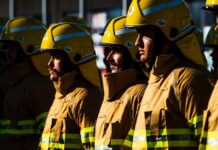Given the astonishing ubiquity of our technological capabilities these days, I may have been one of the last humans on earth to learn the outcome of the American presidential election.
In the event, it was three days before I knew the result. “Have you heard the results…?” a friend murmured over coffee in the village. Correctly interpreting her meaningful glance, I muttered “Bad… ?”
“Very!” she responded, neither of us saying more and I found myself in what earlier generations would have called a shocked silence, an alert, visceral physical stillness, suspended in time, without thought.
If anyone had been watching from near space, beyond the growing vortex of space junk which may soon keep mankind earthbound behind an impenetrable metal girdle for a millennium or two, I suspect Earth itself may have stood still for that fateful few days, as mankind absorbed the unfathomable.
An existential realisation that this is the world as it has come to, up until now. And that it’s already much later than we think.
Good, bad and indifferent, the past cannot be changed by so much as a heartbeat. The present moment is all we have, and the future is what we will continue to collectively make of it from this precise moment onwards.
Half of us trying to be right, the other half wanting to be first – with all the varying degrees and creeds and struggles to dominate and avoid domination.
I had spent the previous weekend in a three-day Zoom conference talking face to face with people from communities all around the world, from Uganda to Singapore and every outpost in Australia and New Zealand.
It had been the melting pot that hippies aspired to back in the ‘60s, a nano-glimpse of our shared humanity and respect for the extraordinary heights we’ve reached as a diverse, collaborative civilisation; the finegrained work being done in all sorts of areas to expand knowledge, skills and meaningful solutions.
My first thoughts were for Ukraine, then for what a hawkish belligerence will do to the Middle East where the stakes are already a tinderbox, without a wildcard president playing favourites with a hopeful Netanyahu.
In the US, the voting margin between the Republican and Democratic camps was about two percent, huge electorally, numerically miniscule and which will prove profoundly consequential for the rest of the world, as a Guardian editorial said earlier in the month.
By now gradually returning from the eerie calm of the first shock, it was a short step to reviewing the structural stress cracks that the election had shown up.
Politics is only a part of this. The long-term accumulation of wealth and a planetary surfeit of billionaire oligarchs are making democracy a sideshow while cash-strapped governments take the flack.
Which hasn’t stopped the US meddling in everyone else’s affairs and elections in both hemispheres for a century, flexing muscles and plundering as it goes.
Democracy now barely exists at all – perhaps least of all in the US where the weird Wild West electoral college has twice delivered presidents who did not get a majority of the citizens’ votes. The poor in America get nickle-and-dimed into extreme, debilitating poverty every-which way and Hilary, or Kamala should have fixed it by now.
America has sequestered so much of other people’s wealth, including ours, that it should be a model society by now. As with the British Empire before it, the aggregated flow of money over generations seems to have done little for the health, wealth or wellbeing of its Dickensian social system and diminishing manufacturing towns.
We have it here with Facebook NZ. It declared $9m revenue in New Zealand and offshoring payments to Meta Ireland of $157 million (an increase of five percent) while Google NZ paid nearly $1 billion in inter-company ‘service fees’ for the year to December 2023, even as our meagre news bargaining bill was foundering. The revenues had previously been what provided the citizenry with a sound ‘fourth estate’ newspaper industry through an independent commercial model.
Nor does anyone talk about the debt burdens loaded onto the global south.
On the skinny branches of the developing world, this unbridled avarice sits side by side with extreme poverty and often slaughter of indigenous communities fighting and dying to save the rainforests, the wildlife and the traditional farmlands of Africa and anywhere else that can be ravaged for short term gain by those with guns and money.
By now, the strange, alert calm of the first few post-election days was starting to fray so I turned to Google and Trevor Noah, known globally for his dexterous comic wit and incisive socio-political commentary on The Daily Show. He had been my best virtual friend of the Covid lockdown years and I laughed til my ribs ached for half an hour.
That man really understands the art of serious play and we probably need to learn from it.
• Liz Waters
© Waiheke Gulf News Ltd 2024






